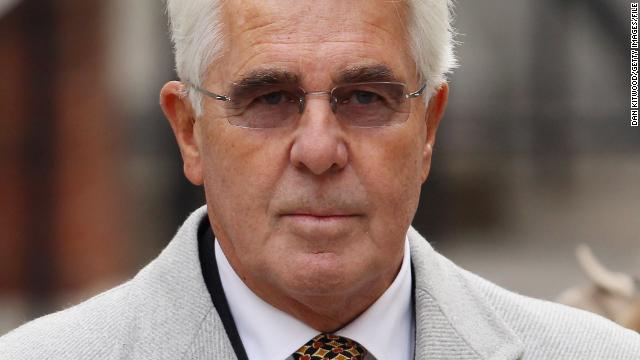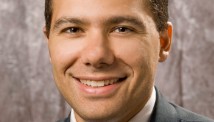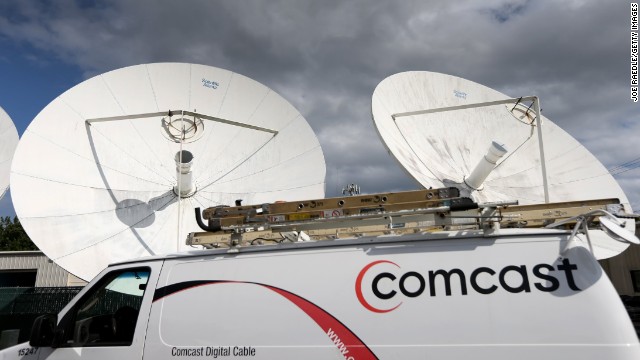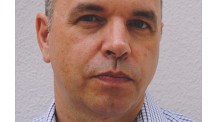Create a one of a kind personalized gift. It's fun and easy to design! From our sponsors |
| CNN.com - Top Stories |
| CNN.com delivers up-to-the-minute news and information on the latest top stories, weather, entertainment, politics and more. |
Remains not al Qaeda bomb maker
4/29/2014 9:18:16 AM

- DNA tests are conducted to determine who was killed in an offensive against AQAP
- The offensive included attacks by Yemeni commandos and suspected U.S. drone strikes
- Saudi officials have a close match for bomb-maker's DNA via remains of his brother
- A bomb inside the brother's body killed him but failed to hit his intended target
(CNN) -- The remains of a Saudi national killed in airstrikes in Yemen earlier this month are not those of a wanted al Qaeda bomb-maker, according to multiple sources in Saudi Arabia who were briefed on the matter.
DNA tests conducted by Saudi officials showed that the remains were not those of Ibrahim al-Asiri, they said.
Saudi officials had obtained a close match to al-Asiri's DNA via remains of his brother, who died in a failed suicide bomb attack. The brother had carried a bomb inside his body, which killed him upon detonation but failed to hit his intended target, Saudi Arabia's security chief.
The sources said that the results were also negative for a DNA match to Nasser al-Wuhayshi, believed to be head of al Qaeda in the Arabian Pennisula. Al-Wuhayshi has been referred to as the "crown prince" of the global terror organization al Qaeda.
Crackdown
The laboratory tests were conducted to determine whether a broad offensive against AQAP, which is considered al Qaeda's most dangerous wing, had eliminated the two men.
The crackdown began over a week ago, resulting in the deaths of more than 60 suspected al Qaeda militants in Yemen from April 19 t0 21, Yemeni officials have said.
Operations have included attacks by Yemeni commandos and suspected U.S. drone strikes, a high-level Yemeni government official said.
U.S. special operations troops helped during that offensive, in part by flying Yemeni forces to a remote, mountainous spot in southern Yemen, though no Americans took part in combat, a U.S. official said.
Terror threats
One reason Yemen and the United States partnered in the offensive: Threats from al Qaeda operatives in Yemen increased in recent weeks.
U.S. authorities blame the Yemen-based branch of al Qaeda for a string of plots against Americans, including the failed attempt to blow up a U.S.-bound jetliner with a bomb concealed in an operative's underwear in 2009.
It is also suspected of being behind another plot involving printer bombs on U.S.-bound cargo jets.
READ: Al-Zawahiri: Followers should 'capture Westerners ... as much as they can'
READ: Threats from al Qaeda in Yemen rose in recent weeks, U.S. officials say
READ: Source: 'Massive' attack targets al Qaeda in Yemen
CNN's Richard Griffiths contributed to this report
Sex assaults: Celebrity publicist guilty
4/28/2014 2:24:55 PM

- Celebrity publicist Max Clifford found guilty of indecent assaults on teenage girls
- Clifford convicted in investigation into allegations against TV presenter Jimmy Savile
- He was convicted of 8 assaults, cleared of two, and a jury failed to reach verdict on another
- Clifford denies claims, calling arrest and prosecution "a nightmare"
London (CNN) -- Celebrity publicist Max Clifford was found guilty at a London court Monday of a series of indecent assaults on teenage girls, according to British police.
Clifford, from Hersham, Surrey, is the first person to be convicted in an investigation into sex abuse allegations against the late British TV presenter Jimmy Savile. He was convicted of eight indecent assaults against young victims -- one as young as 15 -- cleared of two, and a jury could not reach a verdict on one other.
The 71-year-old denied all 11 claims of sex abuse between 1966 and 1985, calling his arrest and prosecution "a nightmare" and declaring his innocence.
But prosecutors portrayed him as an expert manipulator, according to media reports, vowing to help victims' careers and introduce them to celebrities for sexual favors.
He was released on bail until his sentencing Friday, but Judge Anthony Leonard warned him all options were open to him, the Press Association reported. "You must realize that the fact I have given you bail is no indication of what the final sentence will be," he said.
Jenny Hopkins, deputy chief crown prosecutor in London, said: "Today's verdicts provide a long-denied justice to the victims of serious sexual offences.
"I would like to thank these victims for having had the courage to come forward and give evidence. The victims of sexual abuse, whenever it may have taken place, should know that police and prosecutors will listen."
Clifford was arrested in December 2012 and charged in April 2013 on suspicion of sex offenses in connection with the investigation -- dubbed Operation Yewtree -- into numerous allegations made against Savile and others after a TV documentary that aired in October 2012.
In the documentary, several people came forward alleging Savile abused them, unleashing a further flood of allegations against the star, who before that was seen primarily as an eccentric but charismatic man who raised millions of pounds for charity.
Clifford is Britain's most famous celebrity PR consultant, renowned for his decades-long expertise in "kiss-and-tell" clients connected to English Premier League footballers and the world of pop and showbiz. He has also represented several controversial celebrities, including O.J. Simpson, Frank Sinatra and Simon Cowell.
Beyonce, Jay Z announce joint tour
4/29/2014 1:07:32 AM
- Jay Z and Beyonce have announced a joint summer tour
- Anticipation for the tour was stirred earlier this month
- "On the Run" will kick off in Miami in June
- The couple will visit 16 cities before concluding the tour in August
(CNN) -- Cue the screams: One of the hardest-working couples in show business is headed on tour.
On Monday, Jay Z and Beyonce announced a joint summer trek that will take them to 16 cities throughout North America, starting in June.
The married couple first stirred anticipation that they'd tour together in early April, but the buzz was initially dampened by Jay Z revealing that his 2014 "Made in America" music festival will play in both Los Angeles and Philadelphia.
It seems the pair just wanted an element of surprise. Their announcement of the "On the Run" tour arrived complete with an image of the two wearing ski masks.
Even before they quietly tied the knot in 2008, Mr. and Mrs. Carter have dominated the music industry both as solo artists and as a couple. One of their recent collaborations, "Drunk In Love," was controversial but nonetheless landed at No. 1.
And with their "On the Run" tour, the duo are hoping to use their combined star power for good.
A dollar from each "On the Run" ticket sold will go toward the Shawn Carter Foundation, an organization that helps underserved groups go to college. The tour is also being presented in partnership with Beyonce's #BeyGOOD campaign, which seeks to inspire charitable work, kindness and community involvement.
Tickets go on sale for the general public May 2, while anxious fans can visit Beyonce's or Jay Z's Facebook page for information on advance purchases. The tour will launch in Miami on June 25 and wind down in San Francisco on August 5.
Empire building is not a new Cold War
4/29/2014 12:26:12 PM
- The scale of Russian President Putin's imperial ambitions revealed, David Clark says
- But events in Ukraine have left the West uncertain about how to respond, he writes
- There are an arc of countries with good reason to be concerned about Russian policy
- Policy of containment must be used to block the illegitimate exercise of power
Editor's note: David Clark is chair of the Russia Foundation, which is a UK-based think-tank focused on education and dialogue on themes including democracy and economic cooperation. Clark was a special adviser to former foreign secretary Robin Cook between 1997 and 2001. Follow Clark on Twitter. The opinions expressed in this commentary are solely his.
London (CNN) -- The full scale of Russian President Vladimir Putin's new imperial ambition was revealed recently when he referred to the southern and eastern territories of Ukraine as Novorossiya (New Russia).
This was the name given to the region by Catherine the Great after she captured it from the Ottomans in the late 18th century and began colonizing it with Russian, Ukrainian and German settlers.
Along with his assertion that Crimea belongs to Russia because of the blood-price Russian troops paid to conquer it more than two centuries ago, Putin's appropriation of Tsarist terminology establishes a new and troubling benchmark for his irredentist project.

It suggests that all the territories that were once part of the Russian Empire are now fair game.
This concerns far more than the fate of Ukraine. Pushed to its logical conclusion, it poses a direct challenge to the legitimacy and independence of all post-Soviet states.
The practice of manipulating "frozen conflicts" and deploying Russian troops as "peacekeepers" in order to exert leverage is already well established in Moldova, Georgia and Azerbaijan, and there is an extensive toolbox of other coercive measures Moscow is willing to apply, from trade embargoes to cyber attacks.
While the scope of Russian territorial expansion is likely to be limited and the threat of military force mostly held in reserve, the ambition to subordinate the wider region under the aegis of the emerging Eurasian Union is absolutely clear. Welcome to the new Russian Empire.
David Clark
Events in Ukraine have left the West uncertain about how to respond. For all the talk of a new Cold War, there is one important difference with the past that helps to explain why. Whereas Soviet communism defined its ideological purpose in terms of universal goals that posed a threat to the West, Putin emphasizes the exceptional character of Russian civilization and limits his vision to the domination of Eurasia.
His challenge is not of the existential variety that once forced Western governments to set aside their differences in the face of a common enemy.
It belongs instead to the realm of values where the post-Cold War ideal of a "Europe whole and free" clashes with Putin's determination to build an exclusive sphere of influence in the east.
It's much harder to mobilize countries in defense of abstract principles rather than their own physical security, but that is what the West must do if it wants to prevent the unraveling of a European order based on democratic values.
While some lessons of the Cold War will be relevant, others will not.
One idea that deserves qualified approval is containment, once more being talked about as the basis for U.S. policy towards Russia. This was the strategy adopted by the Truman administration at the onset of the Cold War, designed to block Soviet expansionism through a variety of military, economic and diplomatic countermeasures.
The pledge Harry Truman gave to "support free peoples who are resisting attempted subjugation by armed minorities or outside pressures" is certainly relevant at a time when Russian troops are assembling on Ukraine's borders and their proxies are orchestrating violence inside the country.
There is now an arc of countries stretching from the Gulf of Finland to the borders of China with good reason to be concerned about the direction of Russian policy. Many of them have large Russian minorities of their own. The West needs a comprehensive strategy for engaging with all of them.
The states at risk fall into three distinct categories.
The first is comprised of countries like Poland and the Baltic States that already enjoy the institutional security of belonging to NATO and the EU. The task here is to reinforce deterrence capabilities in order to prevent miscalculations on the part of Russia.
David Clark
The second group, and probably the most significant, consists of vulnerable pro-Western countries, including Azerbaijan, Georgia, Moldova, and Ukraine itself, all of which now have Russian troops directly or indirectly involved in conflicts on their territory.
Azerbaijan is particularly important as a strategic partner in helping to diversify Europe's energy supplies. The opening of the southern gas corridor with the addition of the Trans-Adriatic Pipeline will provide substantial quantities of Azeri gas by 2019, thus weakening Russia's grip on the European market.
All of these states are linked to Western institutions through the EU's European Neighbourhood Policy and NATO's Partnership for Peace program.
These need to be upgraded as a matter of priority, especially since full membership is not an immediate prospect. Objectives should include deeper trade ties, structured political consultations and help in modernizing and strengthening their defensive capabilities.
Ultimately, Western countries must be willing to extend explicit security guarantees, preferably within the NATO framework, but outside it if necessary.
Engagement with the third group of countries -- authoritarian post-Soviet states including Belarus, Kazakhstan and the other Central Asian republics -- may seem like a waste of time given the support some of them gave Moscow after the seizure of Crimea.
But much of this support will have been offered out of fear rather than genuine approval. Just as Cold War containment involved engagement with communist countries, such as China and Yugoslavia, willing to depart from the Moscow line, its modern counterpart should aim to disrupt Putin's coercive alliance building strategy at every opportunity.
There is, however, one important sense in which neo-containment should differ from its Cold War predecessor. Although its architect, George Kennan, always hoped that it would be used to modify Soviet behavior, containment in practice became part of a zero-sum struggle in which there could only be one survivor.
The aim of containment today should not be to engineer Russia's collapse, but to block the illegitimate exercise of power and encourage Russian leaders to pursue their interests by respecting the sovereign equality of their neighbors. In the long-term, Russia would be stronger not weaker as a result.
READ MORE: Who is on Russia's sanctions list?
READ MORE: Ukrainian mayor shot in the back
READ MORE: Who will blink first -- Putin or the West?
The opinions expressed in this commentary are solely those of David Clark.
Should it be legal for politicians to lie?
4/28/2014 2:24:27 PM
- Ilya Shapiro says that political speech should not be regulated by states
- The U.S. Supreme Court will rule on an Ohio case that outlaws political lies
- Shapiro: Idea that a censor would vet speeches, ads against Truth-o-meter is a joke
- Ohio's ban of lies and damn lies, he argues, is inconsistent with the First Amendment
Editor's note: Ilya Shapiro is a senior fellow in constitutional studies at the Cato Institute. He filed a brief supporting the plaintiffs in Susan B. Anthony List v. Driehaus, currently before the U.S. Supreme Court. You can follow him on Twitter @ishapiro. The opinions expressed in this commentary are solely those of the author.
(CNN) -- Imagine that a state creates a "ministry of truth" whose job it is to referee elections to make sure that candidates and activists didn't insinuate, exaggerate or otherwise spin their messaging. Any political speech the truth-o-crats determined to be insufficiently candid would carry criminal penalties.
Sounds like a parable about the dangers of taking "clean elections" too far, right? Or a short story by George Orwell or Kurt Vonnegut?
In the American tradition of political free-for-all, the idea that an omnipotent censor would vet stump speeches and ads against some government-designed Truth-o-meter is a joke.
Unfortunately, this is no dystopia. By one count, about 20 states outlaw campaign distortions. Most notoriously, Ohio has a statute that prohibits making "false statements" about a candidate or ballot initiative.

In one instance, former Rep. Steven Driehaus, D-Ohio, used it against an anti-abortion group that had attacked him in the 2010 election. That's the basis of a case now in front of the U.S. Supreme Court.
A hearing last week in the case began with the claim that "Driehaus voted for taxpayer-funded abortion." That's good fodder for dinner-party conversation or TV talking heads, but it was surreal in that it ended up before the highest court in the land.
There's no question that Driehaus voted for the bill at issue -- the Affordable Care Act -- so the only dispute is whether statutory text actually provides federal funding for abortions (a question of legal, economic and even theological interpretation).
Alas, the Ohio law extends even past matters of interpretation. Its broad language also criminalizes rhetorical hyperbole. Legally speaking, Ohio's ban of lies and damn lies is inconsistent with the First Amendment.
Indeed, disparaging political statements -- whether true, mostly true, mostly untrue or wholly fantastic -- are cornerstones of American democracy. Mocking and satire are as old as the republic.
Just ask Thomas Jefferson, "the son of a half-breed squaw, sired by a Virginia mulatto father." Jefferson's 1800 campaign against John Adams would make a modern spin doctor blush -- and that's before James Callender, noted pamphleteer and "scandalmonger," alleged that Jefferson had fathered children with his slave Sally Hemings (a charge largely confirmed nearly 200 years later).
In the fierce election of 1828, supporters of John Quincy Adams called Andrew Jackson a "slave-trading, gambling, brawling murderer." Jacksonian partisans responded by accusing Adams of securing a prostitute for Czar Alexander I.
Later that century, Grover Cleveland was asked at every campaign stop, "Ma, ma, where's my pa?" (Answer: Gone to the White House, ha ha ha!)
More recently, we've debated draft dodging, Swift Boats and birth certificates, not to mention the assorted infidelities that are a political staple. Any of these allegations could generate a complaint to the Ohio Elections Commission and thus turn commonplace jibber-jabber into a protracted legal dispute.
Yet "truthiness" -- a "truth" asserted "from the gut" or because it "feels right" -- is a key part of political discourse.
After all, where would we be without the knowledge that Democrats are pinko-communist flag burners who want to tax churches and use the money to fund abortions so they can use the fetal stem cells to create pot-smoking lesbian ATF agents who will steal all the guns and invite the United Nations to take over America?
Would we be better off electing Republicans, those assault-weapon-wielding maniacs who believe that George Washington and Jesus Christ incorporated the nation after a Gettysburg re-enactment and that the only thing wrong with the death penalty is that it isn't administered quickly enough to secular-humanist professors of Chicano studies?
Laws that criminalize "false" speech don't replace smears and snark with "just the facts." Instead, they chill speech such that spin becomes silence.
Supporters of Ohio's law believe that it somehow stops lies and insults, raising the level of discourse to that of an Oxford Union debate (which itself isn't that high, but that's another story). Not only does this hope stand in the face of political history, it disregards the fact that, in politics, truths are felt as much as they're known.
When a red-meat Republican hears "Obama is a socialist," or a bleeding-heart Democrat hears, "Romney wants to throw granny off a cliff," he feels a truth more than thinking one. No state agency can change this fact, and any attempt to do so stifles vital political speech.
Laws such as Ohio's are so absurd as to be laughable -- except that criminalizing political speech isn't funny. The Supreme Court should close the truth ministries once and for all.
Follow us on Twitter @CNNOpinion.
Join us on Facebook.com/CNNOpinion.
Why you'll hate the Internet 'fast lane'
4/29/2014 1:59:24 PM

- The FCC might allow Internet service providers to charge more for a "fast lane"
- Corynne McSherry: High costs will go to customers; Internet competition will be stifled
- She says other advanced countries pay far less and get faster service than Americans
- McSherry: On May 15, the public can weigh in on FCC's decision and voice concerns
Editor's note: Corynne McSherry is the intellectual property director at Electronic Frontier Foundation. The opinions expressed in this commentary are solely those of the author.
(CNN) -- Recently, Tom Wheeler, chairman of the Federal Communications Commission, came under fire for reportedly proposing exceedingly weak "open Internet rules." If the reports are correct, the FCC will allow broadband providers like Comcast to make special deals that give some companies preferential treatment, as long as those deals are "commercially reasonable."
In other words, rather then requiring broadband providers to treat all Internet traffic more or less equally, the FCC will permit them to create an Internet "fast lane" and shake down content providers like Netflix, Google and Amazon for the right to travel in it.
Guess who will really end up paying for the fast lane? Yep -- you, the customers.
The price will be higher than you think. Not only will you have to pay more for the services you already use, but you will also lose out on emerging services that will be crushed by the new costs.
YouTube and Netflix may be able to "pay to play." But innovative competitors -- the next Facebook, Twitter or YouTube being dreamed up in someone's garage right now -- may not.
The proposed rules aren't all bad. The FCC will also require ISPs to be more transparent about the deals they make so customers will know what they are getting. The FCC will also caution ISPs against making deals that favor their own affiliated businesses (we're looking at you, Comcast -- no special favors for your friends at NBC Universal).
Unfortunately, even "transparency" is tougher to enforce than many might think, because so much of our connectivity depends on secret agreements between various kinds of Internet service providers.
The devil is in the details. The good news is that we will have a chance to look at those details in a few weeks and tell the FCC what we think. The FCC will be voting on the new rules at its May 15 meeting. If it votes to adopt them, it must publish the proposed rules in advance and respond to public concerns about them. The problem is that most people don't know how this process works, and so they don't participate. (The Electronic Frontier Foundation is building a tool that will make that easier; visit our site next month at www.eff.org)
The Internet is too important to leave to bureaucrats who seem more beholden to the ISPs than the public. We need to let the FCC know we will not tolerate rules that let ISPs pick and choose how well Internet users can connect to one another.
If we really want to stop net discrimination, we need to foster a genuinely competitive market for Internet access. Right now, subscribers have few ISP options in many markets. If subscribers and customers had adequate information about their options and could vote with their feet -- i.e., switch providers -- ISPs would have strong incentives to treat all network traffic fairly.
Moreover, they would also have an incentive to improve our Internet speeds. Most Americans don't realize it, but the United States is falling behind when it comes to high-speed Internet. We pay much more for much less than subscribers in other developed countries like Sweden, South Korea and Japan.
Subscribers in those countries are getting Internet service that is 100 times faster than the fastest connection in the United States -- for a fraction of the average U.S. cable bill. That's appalling. We can do better, but only if we start demanding more from ISPs.
Already, our lagging Internet speeds are likely to have serious consequences. "What's at stake is whether the new jobs, new ideas, new services of the 21st century will come from the United States or they'll come from Stockholm, Seoul, Beijing, where kids are already playing in the virtual sandboxes of these very high capacity networks," noted Susan Crawford, a legal scholar who has served on President Obama's science and tech team.
Our ISPs have no incentive to invest in building powerful, competitive, networks. Why should they? It's not like their customers are going anywhere.
Fortunately, efforts are under way to address this. For example, all around the country, cities are investing in their own broadband networks, some successfully. Fostering strong alternatives in high-speed Internet access won't be easy, and community broadband alone won't be the panacea. But it's a start, and a movement the FCC should support.
We'll need more experiments like these if we want the Internet to continue to be an extraordinary platform for free expression, innovation and commerce. So let's make sure the FCC hears us loud and clear: Reject "pay to play" and resist monopolies so that everyone benefits, not just the powerful Internet service providers.
Follow us on Twitter @CNNOpinion.
Join us on Facebook/CNNOpinion.
Who'll blink first, Putin or West?
4/29/2014 8:09:02 AM
- Russia and the West locked in match of wits over eastern Ukraine
- Russia moved thousands of troops to border and is accused of stirring unrest in east Ukraine
- Speck: West must unite to pass severe sanctions on Russian regime
- Speck: Ukrainian government attempt to retake buildings could spark Russian invasion
Editor's note: Ulrich Speck is a visiting scholar at the Carnegie Europe think tank in Brussels. The opinions expressed in this commentary are solely his. Follow @uli_speck and @Carnegie_Europe on Twitter.
(CNN) -- Russia's seizure of Crimea last month may have unfolded with a lightning quickness, but Vladimir Putin and the West are now engaged in a much slower match of wits on a chessboard stretching across most of eastern Ukraine.
Rather than going for checkmate, both sides now seem content to wait for the other to make a mistake. Putin made a strong first move by placing 40,000 troops on the border -- and separatists, who are not officially linked to Russia, on the ground in Ukraine.
Now Moscow is waiting for the pro-Western government in Kiev to try to retake the parts of the east it has seemingly lost. In Russia's eyes, any such move from the capital would legitimize an overwhelming counterattack -- a re-run of the Georgia crisis in 2008, when President Mikheil Saakashvili lost his nerve, shot first, and prompted a Russian invasion.

Putin's problem is time; he cannot wait forever to strike. Troops cannot remain ready for combat for many months at a time. Separatists in eastern Ukraine are lost without outside support, and may become nervous as time drags on without any glimpse of a light at the end of the tunnel.
On the other side of the board are U.S. President Barack Obama, German Chancellor Angela Merkel and Ukraine's fledgling government. The biggest challenge for Obama and his German counterpart is to keep a united Western front. They need to uphold a credible threat of massive economic sanctions that could undercut the Kremlin's funding if it doesn't toe the line.
But cracks in Western unity are visible everywhere. Europe may be concerned about Russian aggression in Ukraine, but the continent is dragging its collective feet on taking a more confrontational stance towards Putin.
Some nations fear Russian pressure, especially on their energy supply. Many are nervous about the price their own countries will pay as a result of tougher sanctions. And nobody is sure yet whether they're ready to abandon the idea of Russia as a vital partner.
Obama, on the other hand, is much more inclined to put the squeeze on the Kremlin. Washington is used to confrontation with Russia -- and with Putin, specifically -- and America is much less economically-connected with its old Cold War rival.
American leaders aren't motivated solely by their concern over eastern Europe and Russia reasserting itself as a more aggressive and expansionist power. The U.S. also wants to assert key norms of international order -- namely territorial integrity and the principle to change borders only with the consent of all parties.
Ukraine is also a welcome opportunity to signal to allies and rivals alike that America is not retrenching from its global engagements. The impact of the Ukraine crisis on China and the various territorial conflicts with its neighbors will also loom very large on the minds of policy makers in Washington.
But whatever the differences among U.S. and EU leaders, the more they act in concert, the better chance they have to achieve their goal: beating back Moscow's attempt to undermine Ukraine's sovereignty and territorial integrity.
The West also needs to make sure that Kiev's interim government doesn't lose its nerve. As hard as it is for leaders to watch pro-Russian separatists take over their buildings, any large-scale operation in eastern Ukraine could give Putin the opportunity he may be waiting for: invasion with some kind of dubious pseudo-legal cover.
It is difficult to say who is in a better position. Putin is a master tactician. Since his years as a KGB agent in Dresden in the 1980s, he has gained much expertise in finding and exploiting the West's weak spots. And he seems to have broad support at home for his confrontational brand of politics.
Putin's weakness is his regime's economic dependency on the West. Without the steady flow of income from the sale of gas and oil, brought under control of the Kremlin, the regime would not be able to buy support at home and to finance costly and risky foreign policy adventures.
The West has no appetite to confront Russia. But if Putin's tanks roll into eastern Ukraine out of the blue, without any pretense of legitimacy, he will turn Western opinion even further against him. This could give Merkel and Obama the necessary backing for tough sanctions.
If he is to achieve his main goal, which is to prevent Ukraine from associating closer with the West, Putin will have to move fast. He probably needs to have some kind of Russian presence inside Ukraine (apart from Crimea), as control over separatists in the east alone might not be sufficient or sustainable.
A full-scale crackdown by the Ukrainian government on separatists would give Moscow the cover to move some Russian troops as "peacekeepers" into eastern Ukraine. Once inside the country, another "frozen conflict" could be created which would destabilize the country and prevent Western attempts to help Ukraine to get on its feet. This would keep Putin's longer-term ambition -- to bring Ukraine into a Moscow-led alliance or federation -- very much alive.
If the Kremlin comes to the conclusion that the West wouldn't respond to such a move with painful sanctions -- ones that would damage Putin's inner circle and be strong enough to sap major sources of income for the Kremlin -- Putin might choose to move along such lines or in other ways.
But if the U.S. and EU demonstrate that they are truly ready to use economic warfare to counter the Russian military machine, the West may yet be able to deter Putin from going much further. Something has to give soon.
READ MORE: Ukrainian mayor shot as West prepares sanctions
READ MORE: Five ways the Ukraine crisis could end
The opinions expressed in this commentary are solely those of Ulrich Speck.
You are receiving this email because you subscribed to this feed at feedmyinbox.com
If you no longer wish to receive these emails, you can unsubscribe from this feed, or manage all your subscriptions

No comments:
Post a Comment